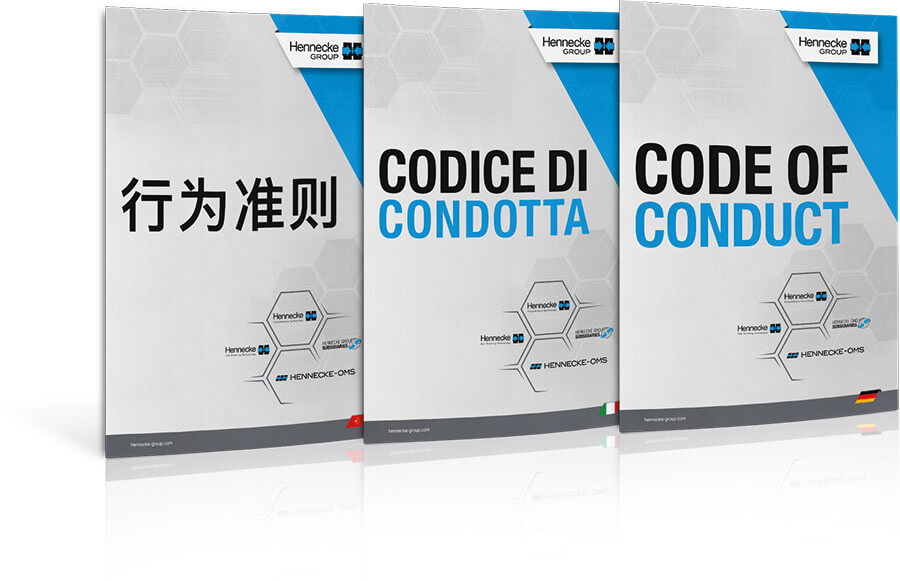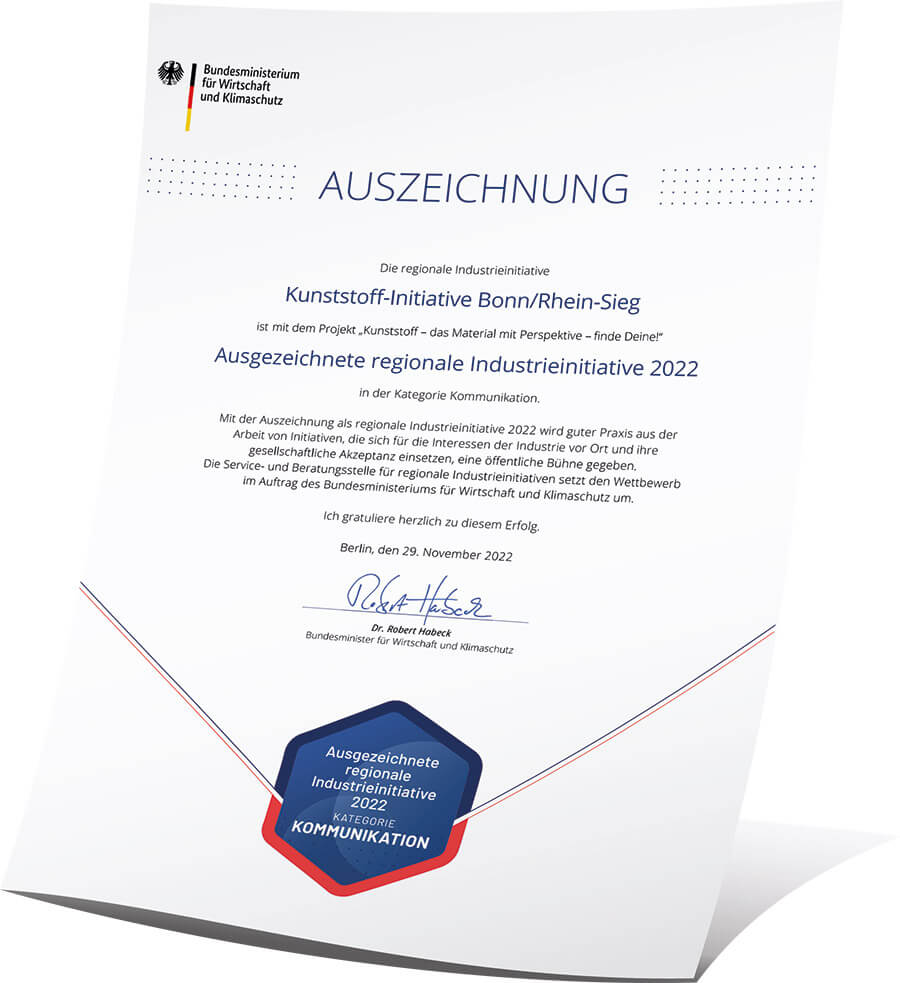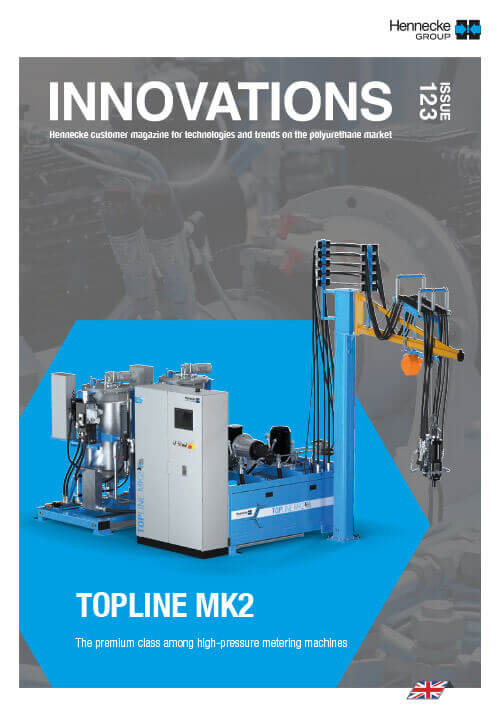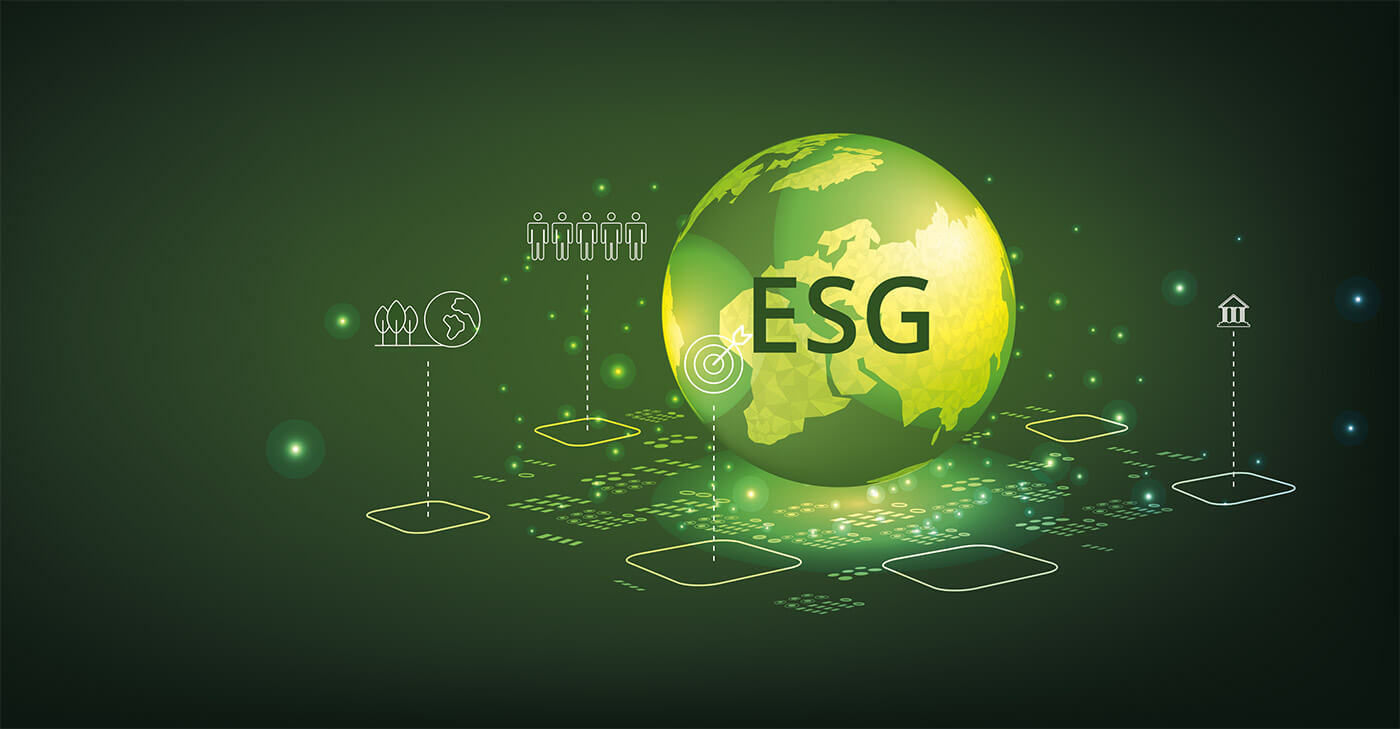
Hennecke‘s
sustainability
strategy
The topics of sustainability and corporate responsibility have increasingly come into focus in recent years. The focus is on climate change, which is becoming increasingly present – but also on steadily rising energy costs and specific legislative requirements, e.g. to measure or reduce CO2 emissions (European Green Deal). In this context, it is important to create transparency about sustainability-related risks and opportunities in the impact on people and the environment in the practice of companies.
In the new version of the legal framework, a company‘s sustainability and financial information have equal priority. This set of rules is divided into three areas: Environment, Social and human rights, and Governance, abbreviated to “ESG.” This means much more than just environment friendliness, even if this area is usually the focus of public attention. Rather, it is a comprehensive overall package with criteria for assessing the sustainability performance of companies in all areas in order to make them fit for the future in the long term.
Hennecke GROUP recognizes its responsibility and has been committed to a comprehensive package of measures in all areas since 2020. The goal is clearly defined: Shaping entrepreneurial success sustainably, for stakeholders and above all for a future worth living.
„Since 2020, we‘ve been investing 4 to 5 percent of our annual turnover in ESG-related topics.“
Thomas Wildt,
CEO of Hennecke GROUP
ESG a central topic at Hennecke since 2020
While many companies still have the ESG reporting required by law from 2025 for larger companies with its more than 100 measurable and verifiable key figures on the topic of sustainability as a task ahead of them, Hennecke GROUP is a decisive step ahead here. “Since 2020, we‘ve been investing 4 to 5 percent of our annual turnover in ESG-related topics,” reports Thomas Wildt, CEO of Hennecke GROUP. The company will publish its first sustainability report as early as the end of 2023. Especially during the economically difficult phase of the pandemic, the time was actively used to invest, to drive the modernization of the company and to make it permanently fit for the future. In the middle of 2019, the Hennecke Business System (HBS) was created, based on the company‘s vision and mission. “The Hennecke Business System generates business sustainability. This is done by generating long term customer value – in other words by offering products and services that enable customers to reach their highest level,” declares Thomas Wildt. This was followed during the pandemic by the Hennecke Production System (HPS), a lean production system based on the Toyota model but thought further ahead – which already includes the components of employee orientation, environmental management and corporate governance.
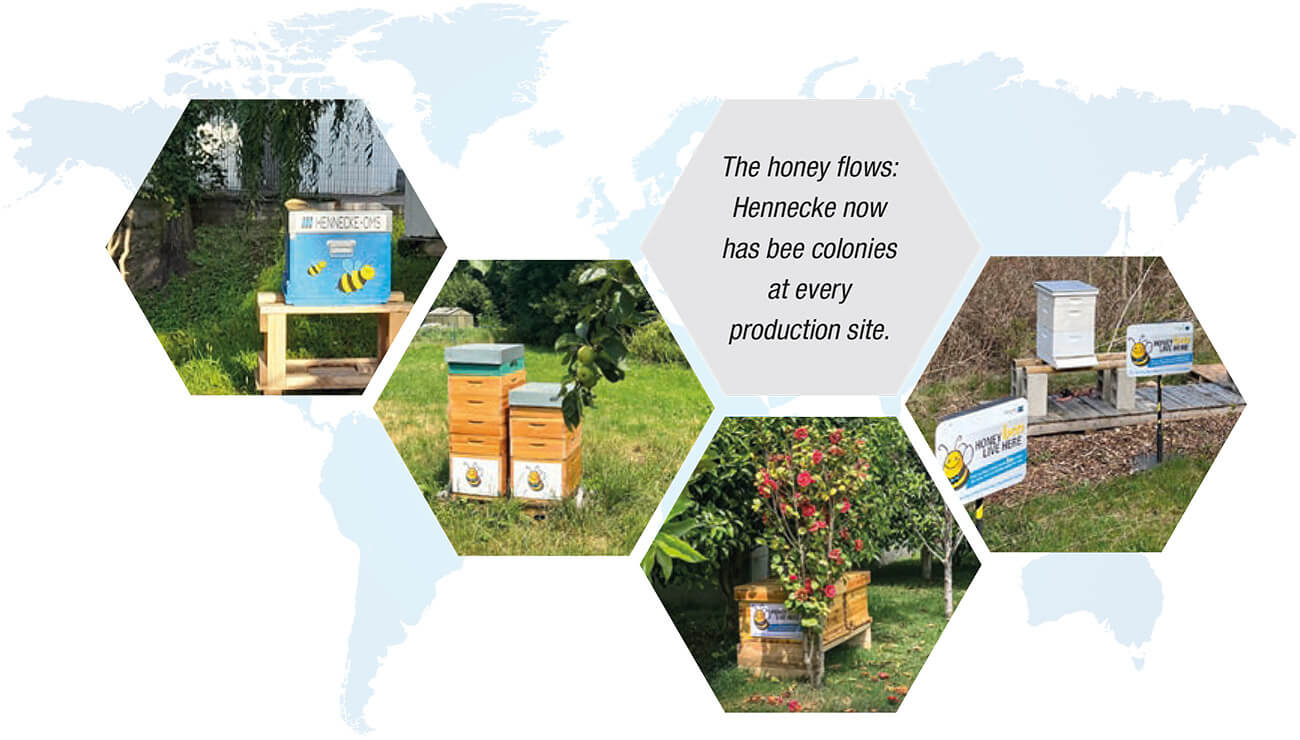
People, planet, profit
The central idea is that a company can only operate on a sustainable basis if it takes into account “the three P‘s”: people, planet, profit – values that already largely correspond to today‘s ESG. „ESG is a top priority at Hennecke. As a fundamental part of our corporate strategy, it‘s right at the top,“ affirms Thomas Wildt. This is why these core objectives are at the top of Hennecke‘s strategy pyramid and are then broken down step by step to the other levels, down to each individual department, employee and product. Thus, with the introduction, all products and services of the future were also defined, new machines were developed and old ones were taken out of service. The focus is always on the customer – who should be able to save raw materials and energy, work more ergonomically and have less maintenance with Hennecke machines. Numerous examples, such as the Next Generation of high-pressure metering machines, the use of Hennecke Blue Intelligence for greater energy and resource efficiency, and many new and further technical developments are proof of the successful implementation.
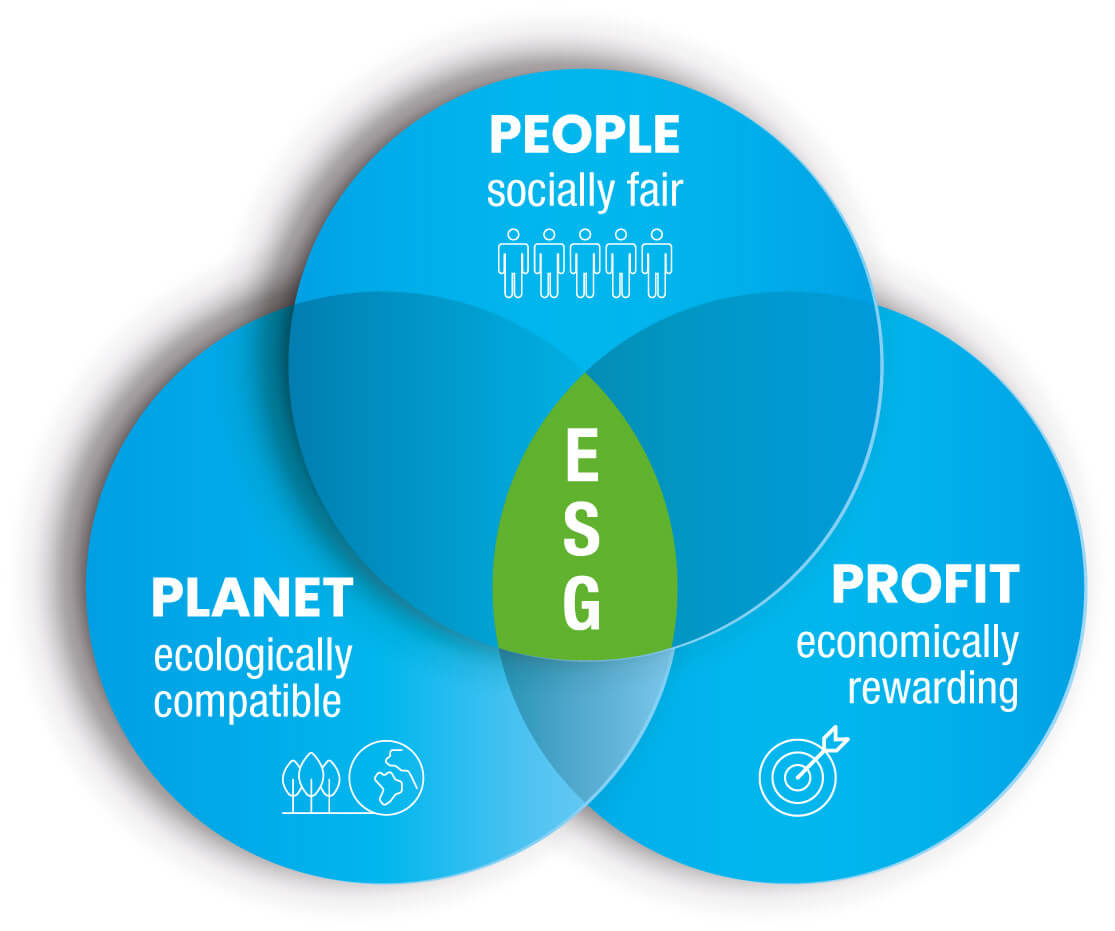
ESG – BRIEFLY EXPLAINED
ESG values promote transparency. They make companies measurable, assessable and comparable in their sustainability activities.
Environmental
This area relates to the environmental impact of companies and covers topics such as climate protection and climate change mitigation, resource use and recycling management, waste management, the proper and professional handling of hazardous substances, or the prevention of soil and groundwater pollution. In short: the commitments and targets for reducing the ecological footprint and preserving biodiversity and ecosystems.
Social
This aspect deals with a company‘s relationships with its employees, customers, suppliers and society as a whole. Topics such as working conditions, human rights, equal treatment and equal opportunities (diversity, equity, inclusion), health and safety in the workplace, the safety of consumers and end users, and social commitment are relevant here.
Governance
This item describes the way in which a company is managed and controlled. This includes corporate governance and culture, ethical principles, fair business relations, integrity, transparency, board composition, independent auditing and compliance.
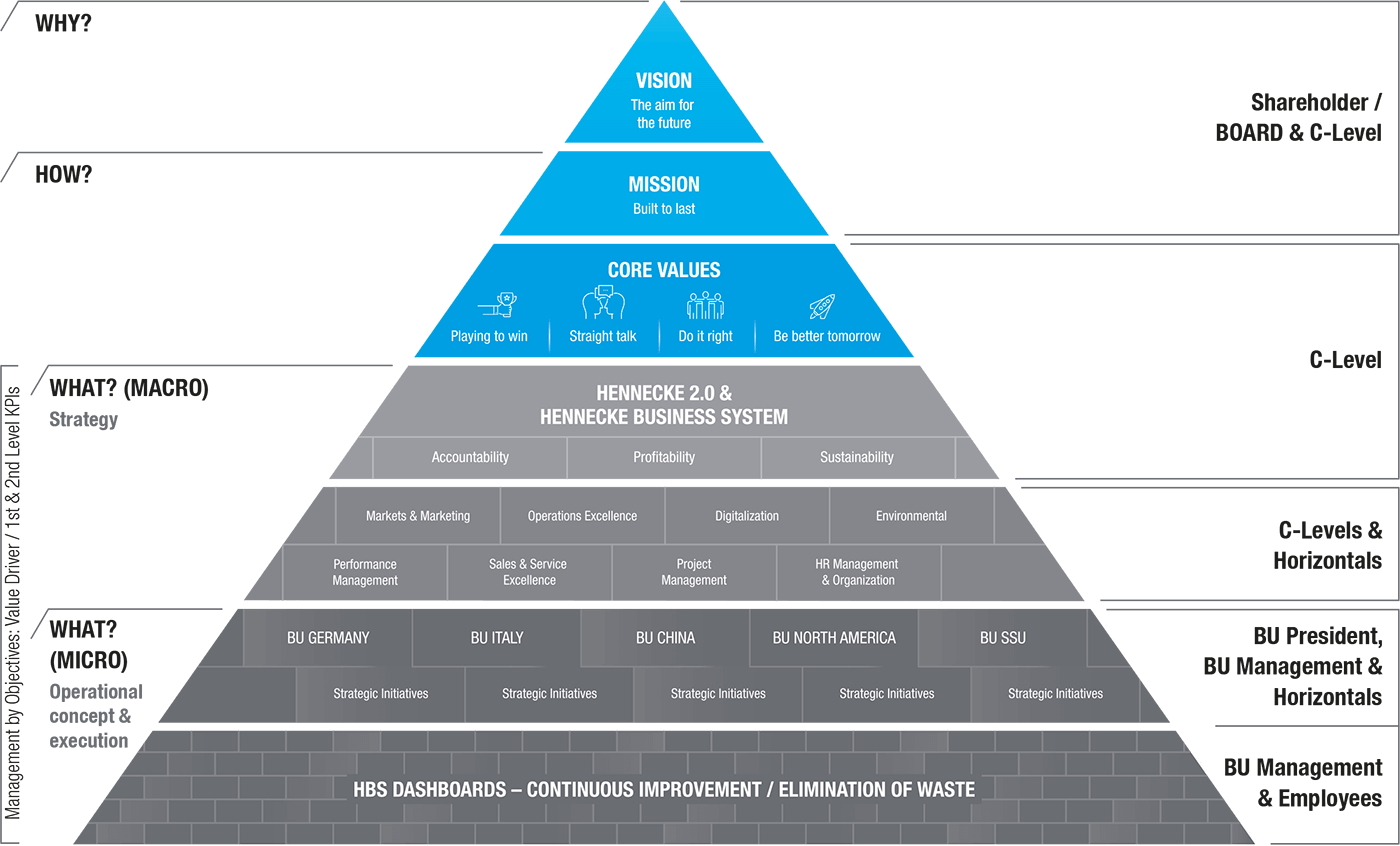
Environmental:
Commitment to the environment
Ecological and economic sustainability have always been anchored in the company‘s DNA. Hennecke GROUP‘s ESG strategy makes it possible to create long-term sustainable added value for its customers that is ecologically compatible, socially just, economically rewarding and thus future-proof. On the basis of values and key figures, the successes are continuously reviewed and future development fields are identified at an early stage. The Environment area covers two aspects: on the one hand, the company‘s own handling of raw materials and energy in production, and on the other hand, the development of technologies that enable customers to produce with even greater resource and energy efficiency using Hennecke machines and systems.
Hennecke is thinking in larger contexts: The company has joined the Science Based Target initiative (SBTi), a cooperation of the Carbon Disclosure Project (CDP), the United Nations Global Compact (UNGC), the World Resources Institute (WRI) and the World Wide Fund for Nature (WWF). This initiative supports companies in aligning their actions to achieve the goals of the Paris Agreement. “We deliberately chose a global initiative because Hennecke GROUP has an export share of over 90 percent – the majority of which is outside the EU,” Thomas Wildt explains this choice. Together with more than 6,000 international companies, the company is thus committed to gradually reducing its greenhouse gas emissions. The goal is to become CO2 neutral by 2050.
Reduce, replace, compensate
To achieve this goal, Hennecke is pursuing three approaches. The first is to significantly reduce its own energy consumption. This is done through a variety of small and large measures. For example, at the production site in Italy, the entire lighting system was switched to energy-saving LED lamps, resulting in savings of more than 50 percent. At the German Group headquarters, the entire heating system is currently being renewed. But even small measures such as water-saving toilet facilities and intelligent light sensors are having a major impact overall. Secondly, fossil fuels are gradually being replaced by energy from renewable sources. On the one hand, this is done by purchasing electricity from renewable sources. However, Hennecke also produces its own electricity: another of the four worldwide sites was recently equipped with photovoltaic systems. Since then, the production sites in Italy and China now generate more than half of their own electricity requirements. The extent to which this is also possible in Germany and the USA is currently being examined. As it is likely to remain a major challenge in the coming years to generate all energy requirements in a CO2-neutral manner, the remaining CO2 emissions will be offset by suitable measures and projects in a third step.
50 percent green electricity as early as 2024
To prove that this is not just lip service, concrete, short-term goals have also been defined. For example, as early as 2024, half of Hennecke GROUP‘s global electricity requirements will come from renewable sources – the powerful solar plants are a first step in this direction. Further evidence of the company‘s sustainable actions is that Hennecke GROUP is certified according to the international environmental management system ISO 14001 at all its sites. ISO 14001 comprises numerous standards on various areas of environmental management, such as life cycle assessments, environmental indicators or environmental performance evaluations, and is reviewed every three years. The company‘s headquarters in Germany will be the first to be certified in the first half of 2024, and preparations are underway at the other sites for certification in the near future. An additional component of the package of measures relates to the avoidance, reduction and recycling of waste. The volume of waste is to be successively reduced year by year in order to conserve resources.
Better ESG values thanks to Hennecke products
In the direction of its customers, Hennecke is also committed to developing products and services that are resource-friendly, low-emission and ergonomic. “Put more specifically, this means that every newly developed product must be significantly better than the previous solution in terms of its ESG properties,” explains Sabine Rudolf, Senior Director Global Hennecke Business System & ESG. For example, it must consume less electricity or require less compressed air, work with environmentally friendly lubricants or be more ergonomic to operate. A current example is the Next Generation of high-pressure metering machines with numerous features that can increase resource efficiency and reduce energy consumption by up to 50 percent in standard applications. Furthermore, Hennecke machines and systems have always been characterized by their very long service life and can be used economically for decades thanks to a wide range of retrofit solutions. The sensible retrofitting of existing production plants in particular is increasingly the focus of the entire Hennecke product range.
In addition, the new “Environmental Technologies” product line was launched in 2022. This comprises new products or technologies as add-on or stand-alone solutions that enable customers, for example, to recycle, downcycle or even upcycle production residues and cuttings and thus generate new value from former waste. “At the latest with the considerable price increases for energy supply in many parts of the world, the topic of energy saving is also clearly in the foreground from the customer‘s point of view,” reports Thomas Wildt. For this reason, the development department is currently working on further technologies that reduce energy consumption: for example, using heat exchangers to efficiently utilize the energy of exothermic reactions such as those that occur during polyurethane processing, or through developments that enable even more precise metering and thus raw material savings.
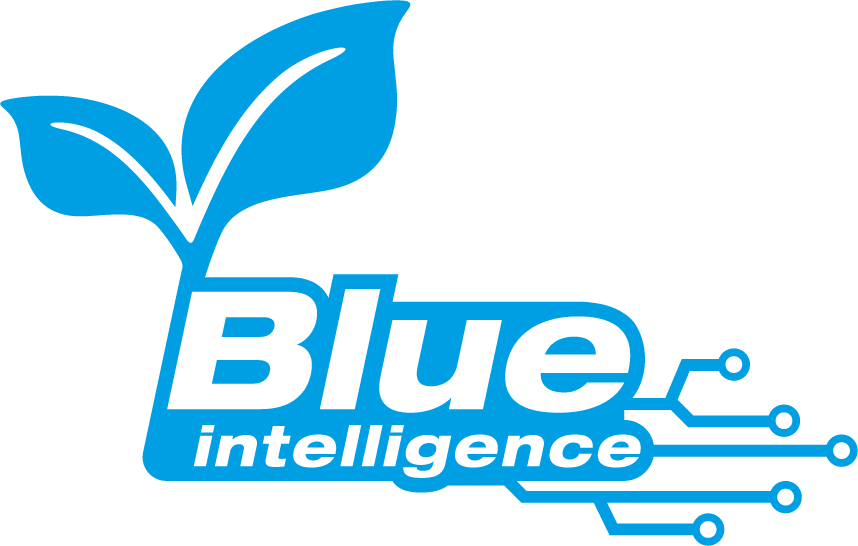
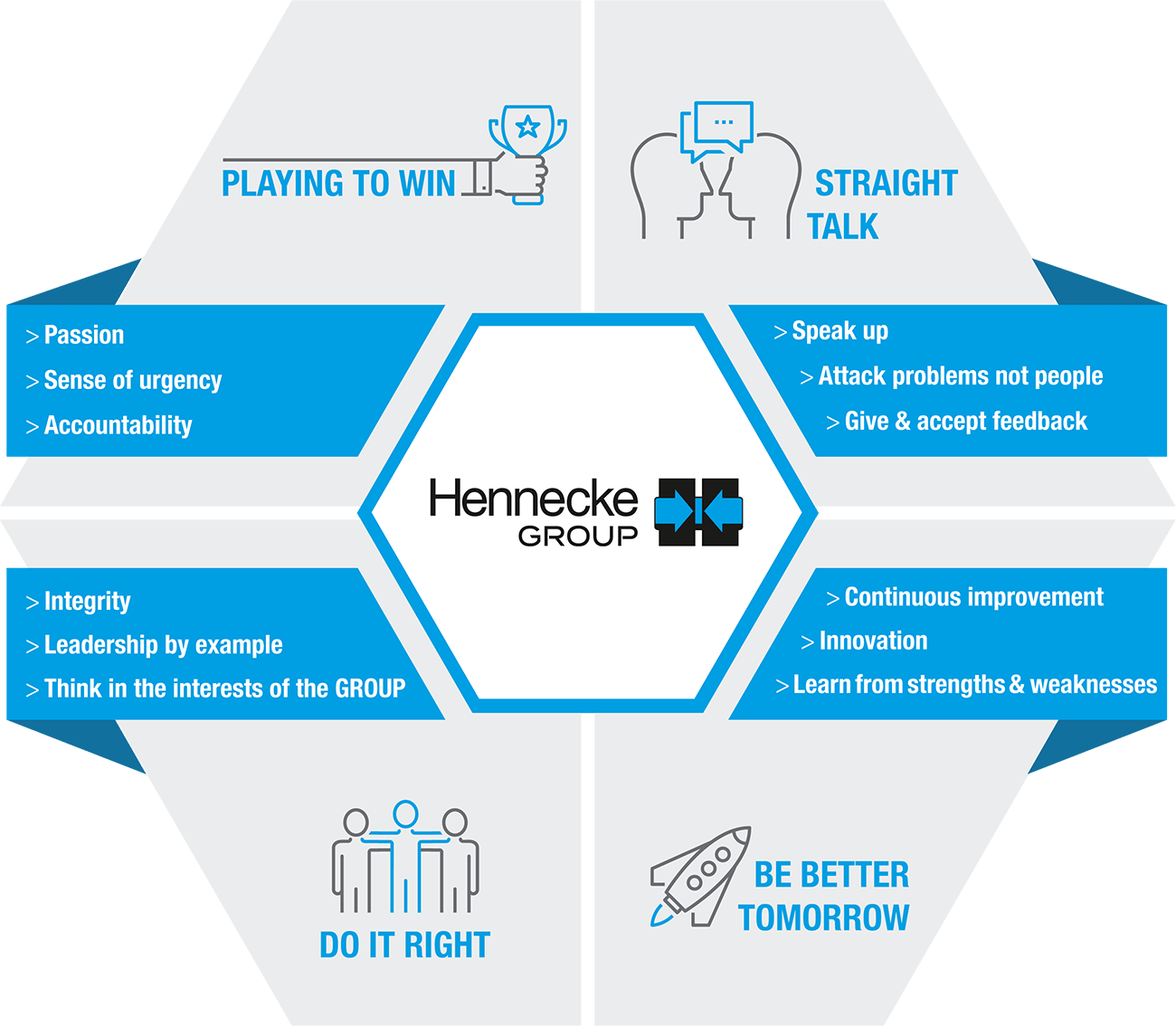
Social: The focus is on people
The social area refers to the people at and around Hennecke: the employees, but also partners, customers and suppliers. Above all, the employees are the company‘s most valuable asset.
Together with the research and consulting institute Great Place to Work (GPTW), the corporate and workplace culture is analyzed, made visible and further developed. The first employee survey on this was carried out in 2021, and since then 170 specific measures have been implemented across the Group with the aim of achieving Great Place to Work certification in 2025. These efforts are part of Hennecke‘s commitment to improving working conditions for employees and thus, for example, reducing the number of days lost through a reduction in the injury rate at its sites. Retaining employees and their know-how in the company is a high priority. One target successfully implemented to date is therefore to keep the fluctuation rate below 5 percent throughout the Group. Another key figure is to fill 70 percent of new positions with internal employees. To this end, all employees receive regular training and development opportunities in order to realize their own development potential in the best possible way.
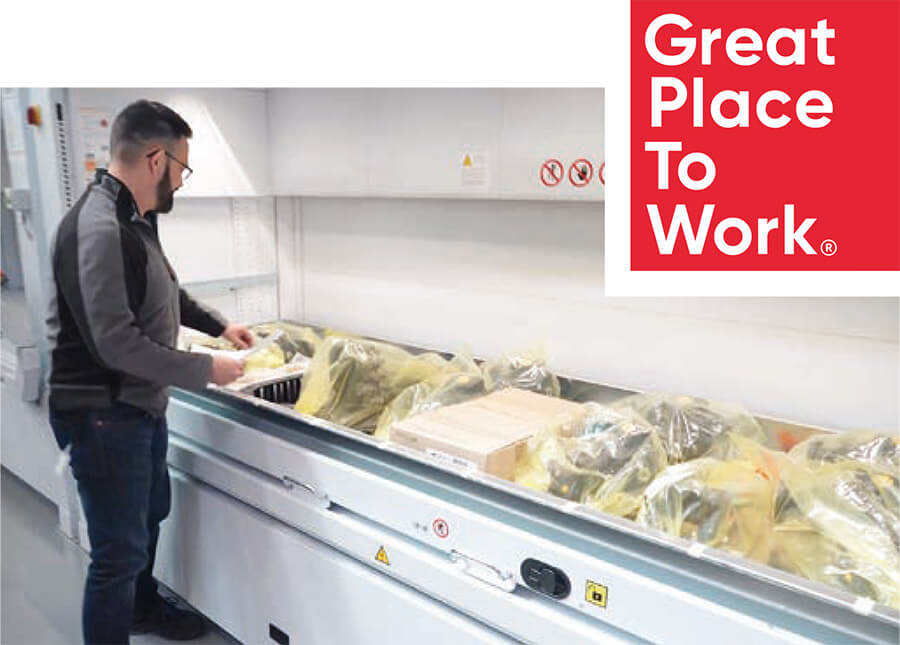
Communication and transparency
A key factor in involving all employees is clear and open communication and corporate transparency. “New measures are not imposed from above, but are developed jointly in workshops. This not only increases acceptance, but also brings in a lot of valuable knowledge and ideas from the workforce,” reports Sabine Rudolf. Particularly at sites where modernization measures are being carried out, this generates indispensable input on ergonomic requirements, the latest tools or other smart solutions. Equally important are the Group-wide communication updates that take place once a quarter. This ensures that every employee knows how the company is doing, where things are happening and what innovations are in the pipeline. In addition, numerous events such as open houses, innovation days, customer events, “Bring your kid to work” events, or targeted invitations from schools and universities round off the shared togetherness. Last but not least, Hennecke is also involved regionally at the respective sites in order to become actively involved in the local communities. For example, by supporting sports or local history clubs or by getting involved in initiatives for a more sustainable future.
Governance: Focus on sustainable values
The topic of conformity with or compliance with guidelines, laws and standards is the focus of the Governance area at Hennecke. This includes, on the one hand, the certification of the quality management system according to ISO 9001:2015, with which Hennecke has already been certified since 1997, but also the certification of the energy management system according to ISO 50001:2018.
With the development and implementation of the Hennecke Business System, the Code of Conduct – a binding code of conduct – was also introduced in the worldwide group of companies. This serves as a binding guideline for making qualified and ethically justifiable decisions in daily work. In this way, Hennecke builds a foundation for mutual trust within the company, just as it does with customers, partners and within the local communities surrounding the sites located around the world. “Integrity, honesty and conformity help us in our decision-making processes and communication. The Code of Conduct is a clear commitment to sustainable corporate development,” reports Jens Frandrup, Vice President HR at Hennecke GROUP, of the launch. All employees have received a copy of the Code of Conduct as well as appropriate training. From now on, long-term and sustainable success is the declared corporate goal – strategically planned and not at any price. “Our aspiration is to create sustainable value for our partners and shareholders. We promote long-term profitability and good business practices along our entire value chain with the Hennecke Business System culture,” adds Sabine Rudolf. Precise procedures and control processes have been defined in order to be able to continuously monitor compliance with the targets set on the basis of key figures. Moreover, a dedicated ESG dashboard is currently being created that will present the respective ESG factors in addition to the financial information in market reporting.
Successful thanks to ESG
In summary, it can be said: With the transformation to the Hennecke Business System, ESG is a central component of the company and a key success factor. This proves that sustainability does not necessarily mean a restriction, but rather a gain. After all, sustainable business means long-term, plannable and secure action. This brings security not only for the company itself, but also for customers, service providers, suppliers and other partners.
